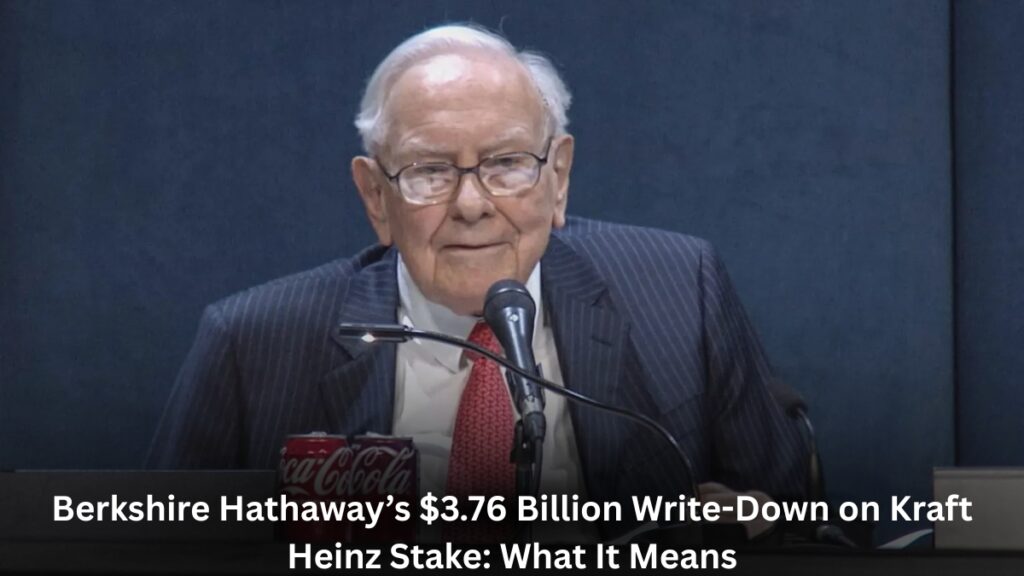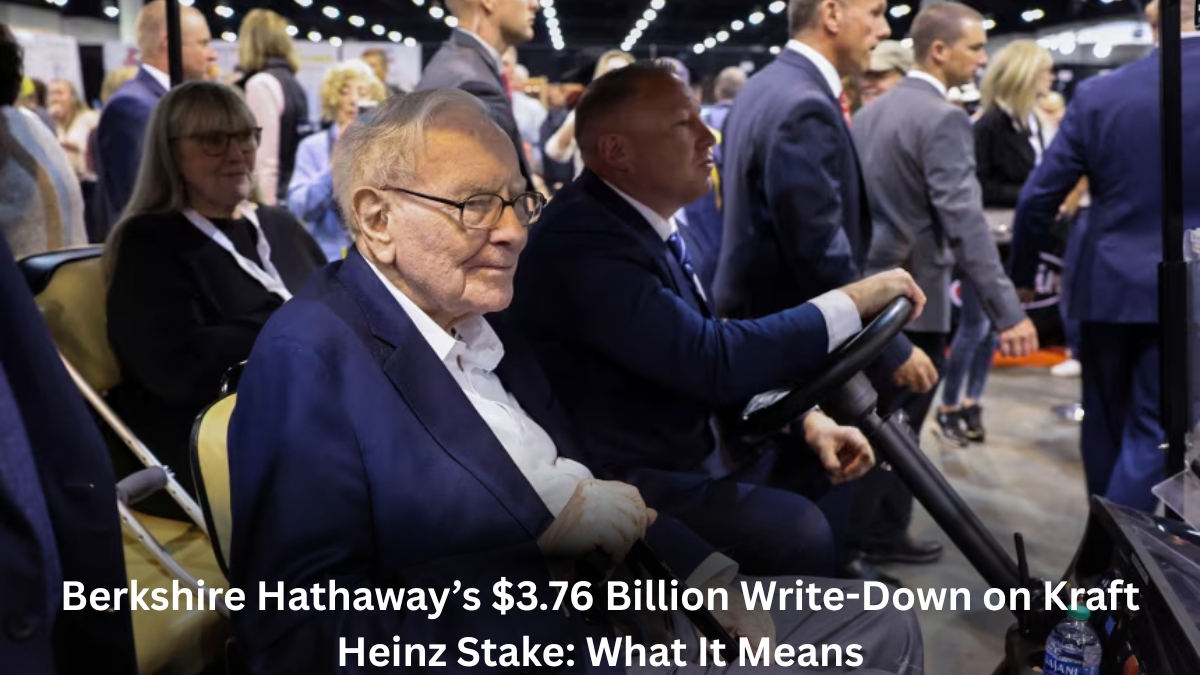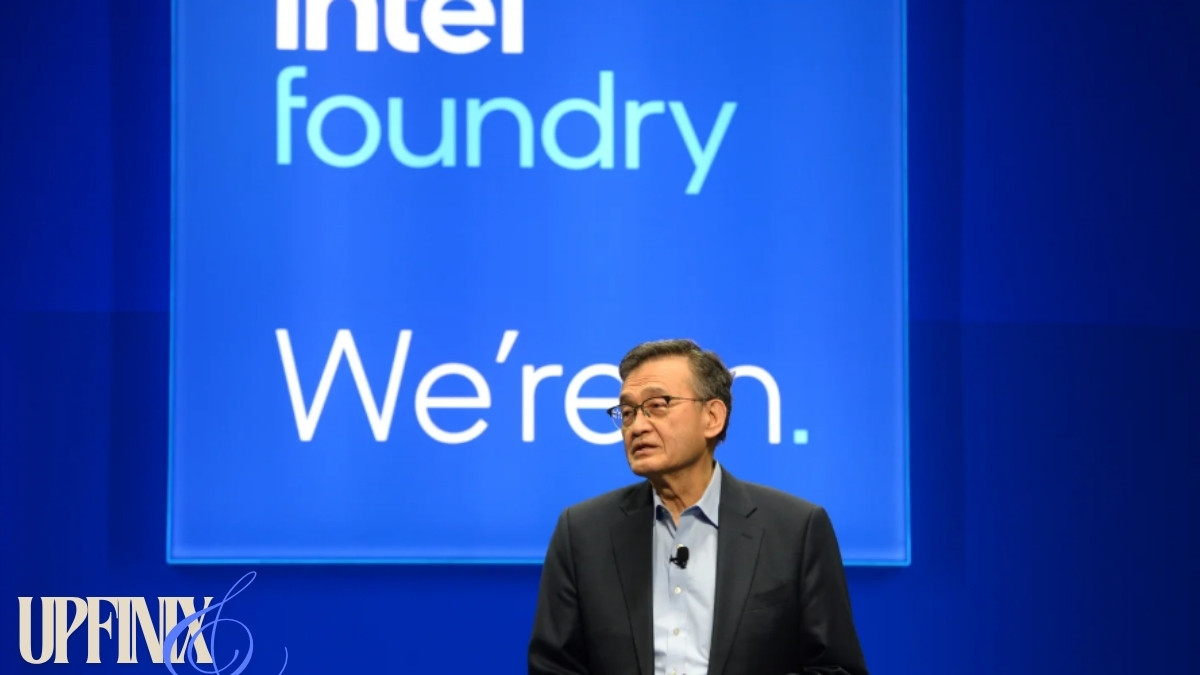In a surprising turn of events, Berkshire Hathaway, the conglomerate led by Warren Buffett, reported a significant hit to its earnings due to a $3.76 billion write-down of its stake in Kraft Heinz in the second quarter of 2025. This development has sent ripples through the financial community, raising questions about the future of both companies and what it means for investors. In this article, we explore the reasons behind this write-down, its implications for Berkshire Hathaway and Kraft Heinz, and what investors can learn from this event. Whether you’re a shareholder or a financial enthusiast, this piece aims to provide a clear and comprehensive understanding of the situation.
Table of Contents
What is a Write-Down?
A write-down is an accounting adjustment that reduces the book value of an asset when its market value falls below its carrying value, and the decline is considered permanent or “other-than-temporary.” For investments in stocks, like Berkshire Hathaway’s stake in Kraft Heinz, a write-down indicates that the company believes the stock’s value will not recover to its previous levels in the foreseeable future. This adjustment affects reported earnings and can signal challenges in the underlying investment.
In this case, Berkshire Hathaway reduced the carrying value of its Kraft Heinz stake to $8.4 billion as of June 30, 2025, down from $12.16 billion, reflecting a $3.76 billion loss. This decision was likely influenced by Kraft Heinz’s ongoing struggles and strategic uncertainties, which we’ll explore further.
Background on Berkshire’s Investment in Kraft Heinz
Berkshire Hathaway’s involvement with Kraft Heinz began in 2013 when it partnered with Brazilian private equity firm 3G Capital to acquire H.J. Heinz Company for $28 billion, including debt. This acquisition was a classic Warren Buffett move, targeting a company with strong, recognizable brands and a global presence. In 2015, H.J. Heinz merged with Kraft Foods Group to form Kraft Heinz, creating one of the largest food and beverage companies in the world. Berkshire Hathaway invested additional capital, acquiring approximately 326 million shares, representing a 26.7% stake.
At the time, the merger was expected to generate significant synergies and cost savings, boosting profitability. Kraft Heinz’s stock price soared to the mid-80s, valuing Berkshire Hathaway’s stake at around $26 billion. However, the investment has not lived up to expectations. Kraft Heinz has faced challenges such as changing consumer preferences toward healthier, fresher foods, increased competition, and operational missteps. By June 30, 2025, the stock price had fallen to approximately $25.77 per share, based on the write-down valuation, representing a significant decline.
Recent Developments at Kraft Heinz
In July 2025, reports emerged that Kraft Heinz is considering a major strategic overhaul, potentially spinning off its grocery business, including brands like Kraft cheese and Oscar Mayer meats, into a new entity valued at up to $20 billion. This move aims to separate the slower-growing grocery segment from the faster-growing condiments and sauces business, such as Heinz ketchup, to unlock shareholder value. According to The Wall Street Journal, this breakup could be finalized in the coming weeks, though Kraft Heinz has stated it is under no timetable to decide.
The potential breakup follows years of underperformance. Kraft Heinz has struggled with declining sales, inflationary pressures, and a shift in consumer demand toward less processed foods. In 2019, the company took a $15.4 billion write-down on its own brands, acknowledging overvaluation. Recent challenges include muted consumer spending and regulatory pressures, such as plans to remove artificial dyes from U.S. food products. These factors likely contributed to Berkshire Hathaway’s decision to view the decline in its Kraft Heinz investment as permanent.
Additionally, the resignation of two Berkshire Hathaway executives, Timothy Kenesey and Alicia Knapp, from Kraft Heinz’s board in May 2025 has fueled speculation that Berkshire may be distancing itself from the company. Some analysts, such as those at Bernstein and JPMorgan, suggest this could pave the way for Berkshire to sell its stake, though no such plans have been confirmed.
Impact on Berkshire Hathaway’s Earnings
The $3.76 billion write-down significantly impacted Berkshire Hathaway’s second-quarter earnings for 2025. The company reported net earnings of $12.37 billion, or $8,601 per Class A share, down from $30.25 billion, or $21,122 per Class A share, the previous year. This sharp decline was largely due to smaller investment gains, with the Kraft Heinz write-down playing a major role.
However, Warren Buffett has long advised investors to focus on Berkshire Hathaway’s operating earnings, which exclude volatile investment gains and losses. In Q2 2025, operating earnings were $11.16 billion, or $7,759.58 per Class A share, down slightly from $11.598 billion, or $8,072.16 per Class A share, a year earlier. This performance exceeded analyst expectations of $7,508.10 per Class A share, according to FactSet Research, highlighting the strength of Berkshire’s diverse businesses, including insurance (e.g., GEICO), railroads (BNSF), utilities, and manufacturing.
Berkshire Hathaway’s financial health remains robust, with a cash reserve of $344.1 billion in cash, cash equivalents, and short-term investments. This substantial liquidity allows the company to absorb setbacks like the Kraft Heinz write-down without significant disruption.
| Financial Metric | Q2 2025 | Q2 2024 |
|---|---|---|
| Net Earnings ($B) | 12.37 | 30.25 |
| Operating Earnings ($B) | 11.16 | 11.598 |
| Earnings per Class A Share ($) | 8,601 | 21,122 |
| Operating Earnings per Class A Share ($) | 7,759.58 | 8,072.16 |
| Cash Reserves ($B) | 344.1 | N/A |
Analyst Perspectives
Analysts have mixed views on the Kraft Heinz write-down and its implications. Some see the potential breakup as a positive step. For instance, Connor Rattigan from Consumer Edge compared it to Kellogg’s 2023 spinoff of its cereal business, suggesting it could streamline operations and boost value. Others, however, are cautious. Bernstein noted concerns about whether Berkshire Hathaway will continue holding its 27% stake, especially after the board resignations. JPMorgan suggested that Berkshire’s exit from the board might reflect a strategic disagreement, potentially paving the way for a sale.
Despite the write-down, some analysts remain optimistic about Kraft Heinz’s future. A December 2024 Motley Fool article highlighted CEO Carlos Abrams-Rivera’s efforts to revitalize the company, suggesting it could be poised for growth in 2025. However, the stock’s 60% decline since 2015, compared to the S&P 500’s tripling, underscores the challenges ahead.
For Berkshire Hathaway, analysts emphasize its resilience. The company’s diverse portfolio and substantial cash reserves provide a buffer against investment losses. The planned leadership transition, with Warren Buffett stepping down as CEO at the end of 2025 and Vice Chairman Greg Abel taking over, adds another layer of interest but does not appear to concern analysts significantly.

Investor Reactions and Market Implications
The market’s reaction to the write-down and Kraft Heinz’s breakup rumors has been mixed. Some investors view the potential spinoff as a chance to unlock value, potentially boosting Kraft Heinz’s stock price. Others are wary of the uncertainty surrounding the restructuring and Berkshire’s next moves. The stock price of Kraft Heinz was approximately $25.77 per share as of June 30, 2025, based on Berkshire’s write-down valuation, down from its mid-80s peak in 2017.
For Berkshire Hathaway shareholders, the write-down is a minor setback in the context of its $344.1 billion cash pile and diverse holdings, including major stakes in companies like Apple and Coca-Cola. The company’s stock price has not seen significant volatility following the announcement, reflecting investor confidence in its long-term prospects.
Lessons for Investors
The Kraft Heinz saga offers valuable lessons for investors:
- Due Diligence is Critical: Even Warren Buffett has acknowledged overpaying for Kraft Heinz, highlighting the importance of realistic valuations.
- Adapt to Market Trends: The food industry’s shift toward healthier, fresher options has challenged traditional brands like Kraft Heinz, emphasizing the need for innovation.
- Diversification Matters: Berkshire Hathaway’s diverse portfolio mitigates the impact of individual investment setbacks.
- Long-Term Perspective: Buffett’s continued holding of Kraft Heinz shares reflects his belief in the enduring value of its brands, a reminder to focus on long-term potential.
Investors should monitor Kraft Heinz’s execution of its breakup plan and Berkshire Hathaway’s response, as these will influence future performance. For those considering Kraft Heinz stock, the average analyst price target is $30.31, suggesting an 11.27% upside from recent levels, though ratings are mixed, with a consensus “Hold” recommendation.
Frequently Asked Questions
1. What Does a Write-Down Mean for Investors?
A write-down is an accounting adjustment that reduces an asset’s book value when its market value declines permanently. For investors, it signals that the company views the loss as unlikely to recover soon, which can impact reported earnings and stock sentiment. In Berkshire Hathaway’s case, the $3.76 billion write-down on its Kraft Heinz stake reduced Q2 2025 net earnings but had minimal impact on operating earnings, which are a better measure of performance. Investors should focus on Berkshire’s overall financial health and Kraft Heinz’s strategic plans rather than the write-down alone.
2. Why Did Berkshire Hathaway Write Down Its Kraft Heinz Stake?
Berkshire Hathaway wrote down its Kraft Heinz stake because it deemed the decline in value “other-than-temporary.” This decision was likely driven by Kraft Heinz’s persistent challenges, including declining sales, competition from private labels, and a shift toward healthier foods. Recent breakup rumors, with Kraft Heinz considering a $20 billion spinoff of its grocery business, added uncertainty, prompting Berkshire to adjust the stake’s value to $8.4 billion as of June 30, 2025.
3. What Are the Breakup Plans for Kraft Heinz?
Kraft Heinz is exploring a spinoff of its grocery business, including brands like Kraft cheese and Oscar Mayer, into a new entity potentially valued at $20 billion. The remaining company would focus on condiments and sauces, such as Heinz ketchup, which have stronger growth prospects. This move, reported by The Wall Street Journal in July 2025, aims to unlock shareholder value by allowing each business to operate independently. The plan is still under review, with no set timeline for completion.
4. How Has Kraft Heinz’s Stock Performed Since the Merger?
Since the 2015 merger, Kraft Heinz’s stock has underperformed significantly. Peaking in the mid-80s in 2017, the stock fell to around $25.77 by June 30, 2025, based on Berkshire’s write-down valuation. This represents a roughly 60% decline, compared to the S&P 500’s tripling over the same period. Challenges include changing consumer preferences, operational issues, and a 2019 $15.4 billion write-down by Kraft Heinz itself.
5. What is Warren Buffett’s View on the Kraft Heinz Investment?
Warren Buffett has admitted to overpaying for Kraft Heinz, stating in a 2019 CNBC interview, “I was wrong in a couple of ways on Kraft Heinz. We overpaid.” However, he remains optimistic about the company’s iconic brands, noting their long-term value. Despite the 2025 write-down, Berkshire has not sold its 326 million shares, suggesting Buffett’s continued belief in Kraft Heinz’s potential, especially if the breakup succeeds.
6. How Does This Write-Down Affect Berkshire Hathaway’s Overall Portfolio?
The $3.76 billion write-down is significant but represents a small fraction of Berkshire Hathaway’s portfolio. With $344.1 billion in cash and diverse holdings in companies like Apple and Coca-Cola, Berkshire can absorb this loss. The write-down reduced net earnings but had little impact on operating earnings, which remained strong at $11.16 billion in Q2 2025. Investors should view this in the context of Berkshire’s overall financial strength.
Conclusion
The $3.76 billion write-down of Berkshire Hathaway’s Kraft Heinz stake highlights the challenges faced by both companies. For Kraft Heinz, the potential breakup offers a chance to refocus and revitalize, but it also introduces uncertainty. For Berkshire Hathaway, the write-down is a minor setback in an otherwise robust financial picture. Investors should stay informed about Kraft Heinz’s strategic moves and Berkshire’s response while recognizing the broader lessons about valuation, diversification, and long-term investing.









